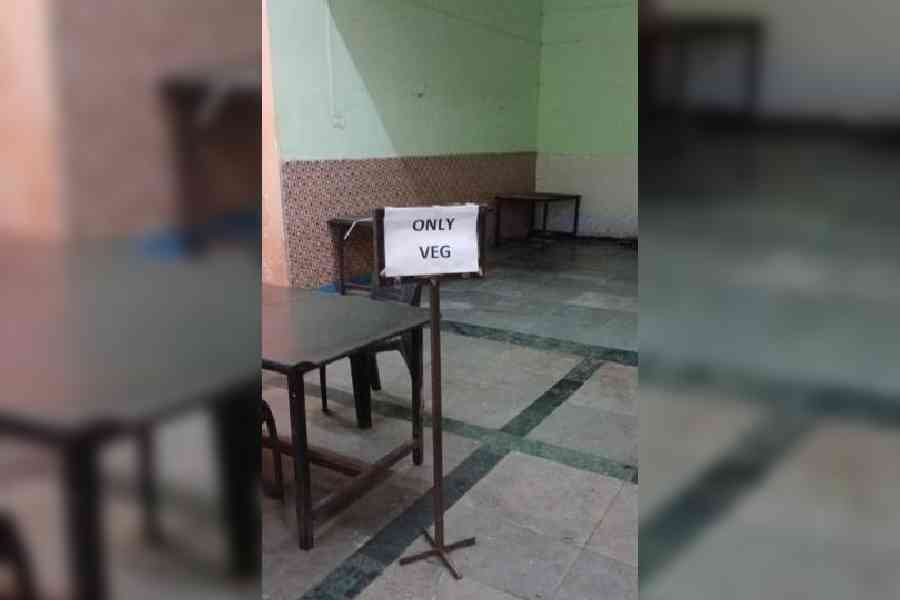Students at IIT Kharagpur’s BR Ambedkar Hall of Residence recently received an email mandating “compliance with vegetarian and non-vegetarian seating arrangements” in their dining hall — a policy that has reignited debates about inclusivity at India’s premier technical institutions.
The August 16 directive to 1,300 residents came after “complaints have been increasing about boarders occupying vegetarian tables while eating eggs, fish, or chicken,” according to general secretary (mess) Nilanjan Paul, a PhD student who oversees hostel canteen operations.
“This goes against the mess seating rules and shows a lack of respect for others’ food preferences, affecting a harmonious environment,” Paul wrote in the email.
The segregation marks a significant shift from IIT Kharagpur’s historical practices. Former students and faculty say such divisions were virtually unknown in previous decades, when students with different dietary preferences routinely shared tables.
“While we ate the food of our choice — vegetarian and non-vegetarian — we sat on the same tables. It helped us strike bonds among ourselves. What is happening now is a promotion of cultural differences,” said a former Ambedkar Hall resident.
The irony hasn’t been lost on many observers: the policy is being enforced in a hostel named after BR Ambedkar, the architect of India’s Constitution, who fought against caste-based discrimination and social divisions throughout his life.
IIT Kharagpur isn’t alone in implementing such measures. In August 2024, IIT Bombay’s Amul Canteen banned non-vegetarian food entirely, posting a notice declaring it a “pure-vegetarian eatery” where bringing non-vegetarian items was “strictly not allowed.”
The notice, which sparked widespread debate across the campus, was shared on social media by the Ambedkar Periyar Phule Study Circle (APPSC), a prominent students’ collective at the institute.
At IIT Kharagpur, the Madan Mohan Malviya Hall has reportedly separated entire floors based on food preferences. On January 22, 2024 — the day of the Ram temple consecration in Ayodhya — most IIT Kharagpur hostels served only vegetarian meals.
Anupam Basu, a former IIT Kharagpur professor who later was director at NIT Durgapur, called the trend “unfortunate and divisive.”
“Demands for such segregations had been raised during my stint as director of NIT Durgapur, but I did not allow it,” said Basu, now Raja Ramanna Chair Professor at Jadavpur University.
“In my 38-year teaching career at IIT Kharagpur, it was only toward the end that I sensed this call for segregation creeping into campus. The decision is unfortunate and divisive,” he said.
Current IIT Kharagpur director Suman Chakraborty, who took charge in June, acknowledged the policy shift. “Though such segregation was not there earlier, it has been allowed now as students insist on it,” he said, noting that halls wanting segregated dining areas are “free to exercise it.”
Paul, the mess secretary from Siliguri who is himself non-vegetarian, defended the policy as a necessary accommodation. “We have to honour the preference of those who are not (non-vegetarian),” he said, referring to vegetarian students “from some states” who complained about table-sharing.
The controversy reflects broader tensions in Indian higher education as institutions navigate between their traditionally secular, integrative missions and pressure to accommodate increasingly polarised cultural and religious preferences. What was once seen as a space for breaking down social barriers is now grappling with demands to institutionalise them.











